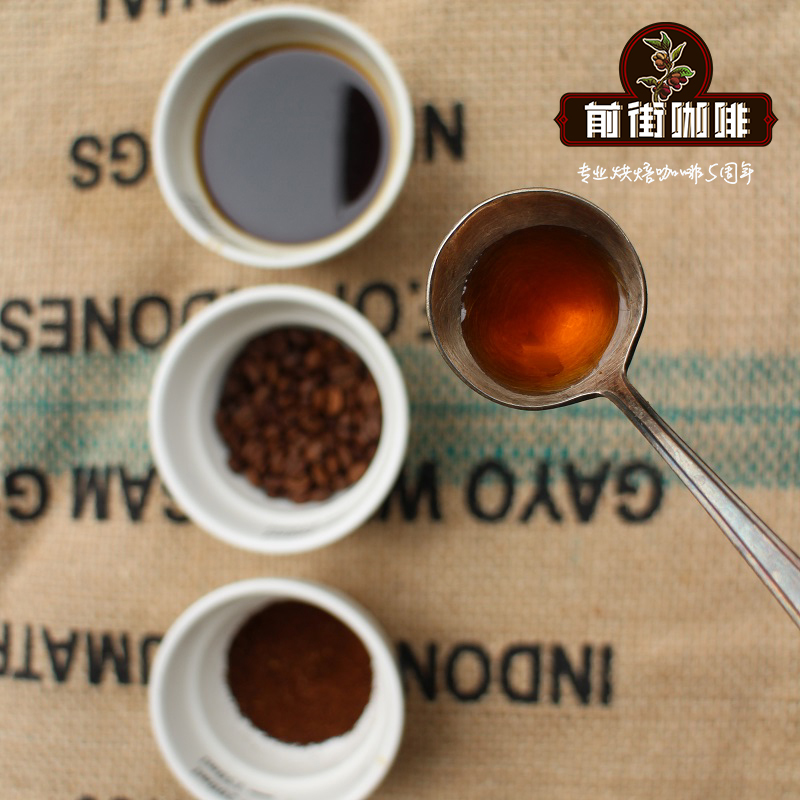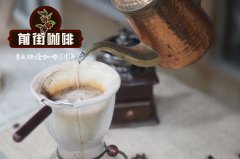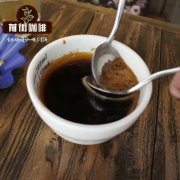Flavor characteristics of 72-hour refined washed coffee beans in Kenya _ what is 72-hour delicate washing treatment

Professional coffee knowledge exchange more coffee bean information please follow the coffee workshop (Wechat official account cafe_style)
Kenyan Coffee-Jiamoni
Most of the Kenyan coffee trees grow in the mountains north and west of the capital Nairobi. The main producing area extends southward from the southern slope of Kirinaga, Kenya's highest peak, to near Nairobi, which is close to the equator. It is the largest coffee producing area in Kenya. In addition, there is a relatively small producing area on the eastern slope of the Elgon Mountains, where high-quality coffee beans are grown, with slightly thick aromas, bright and complex fruit flavors and grapefruit aromas.
Flavor characteristics
Red grapes, apples, raisins, medium alcohol thickness, cocoa, lime water
Comment
Kenyan coffee cups are ground into powder and have a strong cocoa flavor. I use a special cup to brew. This is a Ruijin cup. It's fun. It's a cup I started using many years ago. Now take it out for nostalgia. The water temperature is set to 95 degrees, and the cocoa flavor is also outstanding. You can also smell that the baking of this one is deeper than that of Niagara, and the bitter and sweet taste is better. After the temperature drops, the mouth still has a nutty taste. I think this potato chip with sea salt flavor will be very good.
Acidity: ❤❤❤
Alcohol degree: ❤❤❤❤
Sweetness: ❤❤❤
Huigan: ❤
Introduction of processing plant
The Kiangombe factory is 2km from the town of Kimunye in Kirinaga, named after the Kikuyu, Kenya's largest minority group, because there was a large dairy market in the village in the early days.
The Kiangombe factory was built in 1998 and belongs to the Karabe cooperative. The cooperative has more than 6, 000 members, of which the Kiangombe factory is registered with more than 600 small farmers.
The water source for washing treatment at the Kiangombe plant comes from the Mukengeria River, which is then dried on a raised tanning bed for about 20 days according to weather conditions.
02 | production area description
Kirinaga Kirinyaga
Kirinyaga is located on the hillside of Mount Kenya, near Nyeri, famous for its strong flavor, rich layers and solid taste of coffee, and Nyeri is recognized as the two best producing areas in Kenya. Most of the producers in this area are small coffee farmers who join the cooperative, while the cooperative plays an integrated role in providing washing plants, while coffee farmers send coffee cherries to the co-operative's processing plant for raw bean processing.
"Kirinaga". It is the name of Mount Mount Kenya, the highest mountain in Kenya and the second highest in Africa. It is also the local name of Mount Kenya.
The reason why Europeans call it "Mount Kenya" is said to be unable to imitate the local pronunciation "kirinyaga" very well.
Kirinyaga comes from the Kikuyu, which means "white mountain" and is thought to be the place of the gods. The Kikuyu are the most populous people in Kenya, accounting for 1/5 of the total population.
03 | Analysis of raw beans
SL-28 and SL-34 are the two most respected varieties produced by the Scott laboratory in Kenya in the 1930s. The Scott Laboratory no longer exists, but it is now the National Agricultural Laboratory and part of the Kenyan Agricultural and Animal Husbandry Research Organization. Both varieties are derived from bourbon.
Although it comes from a different pedigree: SL-28 was developed from drought-resistant varieties originally grown in Tanganyika, which is part of modern Tanzania; it is generally considered to be of the highest quality, but its yield is low compared to other commercial Arabica varieties. SL-34 is a variety originally found near Kabete and performs well at low elevations. Both SL variants showed bronze tender leaves.
04 | introduction to coffee processing in Kenya
Kenyan water washing is a cyclic repeated treatment after fermentation. On the day of harvest, the best quality coffee cherries are selected, peeled and fermented. The fermentation time is 12-24 hours, and then washed with clean river water 24 hours later. Then, it is fermented again with clean river water for 24-48 hours, and then washed, so it is repeated twice for 72 hours, so it is called Kenyan 72-hour fermentation water washing treatment, referred to as K72. This treatment allows coffee beans to ferment for a long time at low temperature, so that beans can have a brighter, cleaner but full flavor!
END
Important Notice :
前街咖啡 FrontStreet Coffee has moved to new addredd:
FrontStreet Coffee Address: 315,Donghua East Road,GuangZhou
Tel:020 38364473
- Prev

Introduction of Kenya Ruby Cooperative Coffee beans in 2018 New season. What is the flavor of pure SL varieties?
Professional coffee knowledge exchange more coffee bean information please follow the coffee workshop (Wechat official account cafe_style) 2018 new season Kenya coffee-ruby cooperative exquisite washing black plum flavor pure SL coffee producing area. Nyeri Country, Kenya processing plant. Githiru Cooperative altitude. 1650 M beans. SL28 & SL34 /
- Next

Introduction to the flavor characteristics of Kenyan coffee beans at the top of the equator. How much is the Kenyan coffee bean
Professional coffee knowledge exchange more information about coffee beans Please follow Coffee Workshop (Wechat official account cafe_style) the popular Kenyan coffee in Western Europe is native to Kenya and is proud of its production. Kenya is a country located on the equator, because the plateau of Kenya has a very well-drained volcanic soil and is rare in a tropical climate.
Related
- Detailed explanation of Jadeite planting Land in Panamanian Jadeite Manor introduction to the grading system of Jadeite competitive bidding, Red bid, Green bid and Rose Summer
- Story of Coffee planting in Brenka region of Costa Rica Stonehenge Manor anaerobic heavy honey treatment of flavor mouth
- What's on the barrel of Blue Mountain Coffee beans?
- Can American coffee also pull flowers? How to use hot American style to pull out a good-looking pattern?
- Can you make a cold extract with coffee beans? What is the right proportion for cold-extracted coffee formula?
- Indonesian PWN Gold Mandrine Coffee Origin Features Flavor How to Chong? Mandolin coffee is American.
- A brief introduction to the flavor characteristics of Brazilian yellow bourbon coffee beans
- What is the effect of different water quality on the flavor of cold-extracted coffee? What kind of water is best for brewing coffee?
- Why do you think of Rose Summer whenever you mention Panamanian coffee?
- Introduction to the characteristics of authentic blue mountain coffee bean producing areas? What is the CIB Coffee Authority in Jamaica?

